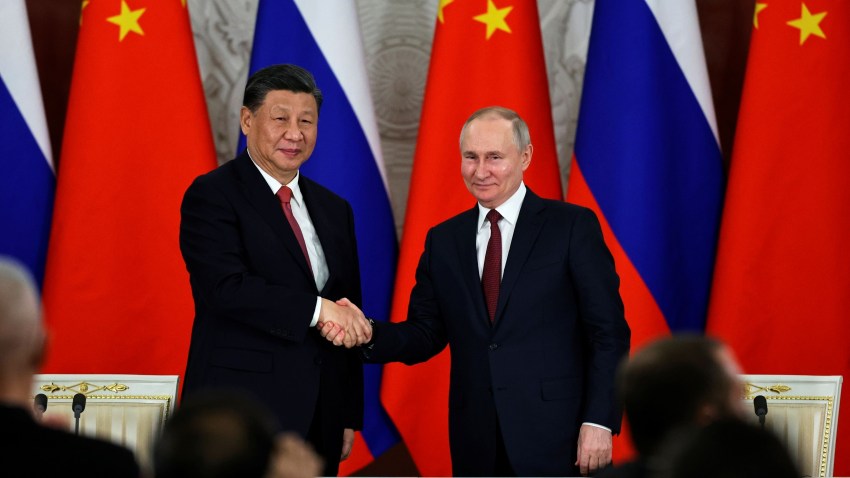Last week, Chinese President Xi Jinping traveled to Moscow to meet with his Russian counterpart, Vladimir Putin. The visit marked the 40th time the two men have met in person, including on several occasions since Russia’s full invasion of Ukraine last year. Though billed as an “informal meeting,” the visit was notably formal in terms of pomp and circumstance. The leaders jointly declared their opposition to the West’s “hypocritical narrative of the so-called ‘democracy against authoritarianism.’” On bidding his host farewell, Xi noted profound changes to the international order and asserted, “When we are together, we drive these changes.”
Many observers have downplayed the trip, saying it did little to nothing for Moscow. Others argued that it even sealed Russia’s fate as a vassal of China, whose domination of the bilateral partnership is now “complete.” But this might be short-sighted. The meeting between Xi and Putin continued the process of solidifying relations between the two countries that was accelerated last February by their “no limits” joint statement on the eve of the Beijing Winter Olympics. Xi’s trip signified the growing strength of Russia and China’s partnership in several important ways.
First, Xi’s decision to carry through with the visit despite the West’s efforts to isolate Putin as an international pariah—and just days after the International Criminal Court issued a warrant for his arrest for war crimes—further legitimized the Russian leader. While some say that the trip’s symbolic value was the only benefit it offered Putin, that symbolism still matters. A number of countries in the Global South are still not willing to take a side publicly over the war in Ukraine, even if they condemn aggression in general terms. Xi clearly is.

